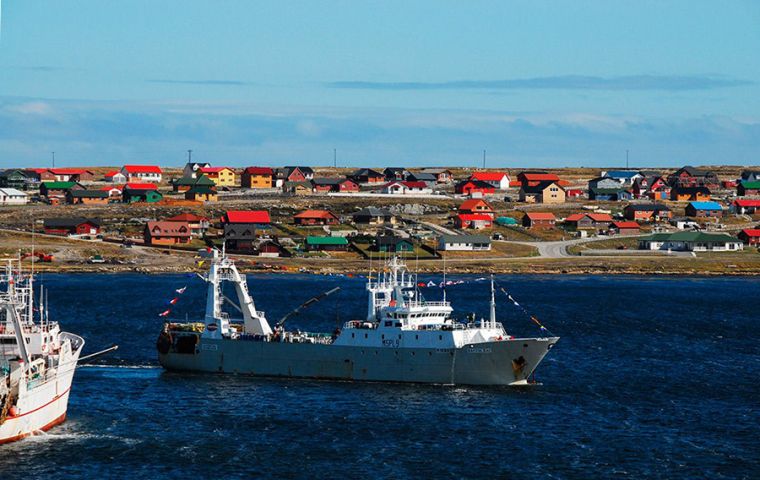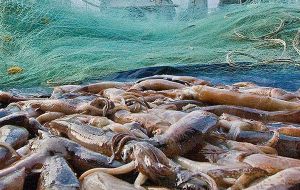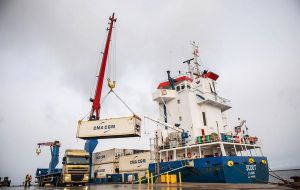MercoPress. South Atlantic News Agency
UK stands for Falklands' squid in post-Brexit trade talks, Financial Times
 European diplomats told the FT that Britain had made formal representations to preserve tariff-free trade for Falklands' Loligo squid
European diplomats told the FT that Britain had made formal representations to preserve tariff-free trade for Falklands' Loligo squid  Loligo and other fisheries products to the EU account for more than 40% of the BOT's economic output, as well as a third of its government's revenue.
Loligo and other fisheries products to the EU account for more than 40% of the BOT's economic output, as well as a third of its government's revenue.  In effect the EU is the destination for close to 90% of the Falkland Islands’ exports of fishery products, measured by weight, according to 2018 data.
In effect the EU is the destination for close to 90% of the Falkland Islands’ exports of fishery products, measured by weight, according to 2018 data. UK has been standing out for the Falklands and its squid and fish sales to the European Union, according to an article from the Financial Times, credited to Jim Brunsden in Brussels, and referred to the post-Brexit EU/UK trade talks.
“European diplomats told the FT that Britain had made formal representations in recent weeks to preserve tariff-free trade in the south Atlantic archipelago's Loligo squid, a type of calamari, as part of the UK and EU’s future economic relationship.
”The squid, which is the Islands’ major fisheries export to Europe, arrives in the EU through the Spanish port of Vigo, and the Falklands government estimates that close to half of the calamari eaten in southern Europe comes from its waters“.
The article goes on to explain that the issue is of acute importance to the Falklands, which has warned of a heavy economic blow if current trade links for squid are not maintained. Loligo and other fisheries products to the EU account for more than 40% of the BOT's economic output, as well as a third of its government's revenue.
In effect the EU is the destination for close to 90% of the Falkland Islands’ exports of fishery products, measured by weight, according to 2018 data.
Allegedly, ”talks between the EU and UK are set to intensify in the coming weeks amid a growing sense of optimism following a virtual summit between Britain’s prime minister Boris Johnson and EU leaders.
“EU diplomats said the UK had submitted written proposals to Brussels that the exports should be covered by any future EU-UK trade deal. Without this, the squid could face import tariffs of 6%, while other Falklands fish products could be hit with duties of 18%”.
However, “Britain has argued that the issue is of shared interest to the EU and UK given that Spanish-crewed vessels are responsible for much of the catch. But the issue of British trading rights for fish has become politically bound up with Europe's determination to preserve fishing rights in UK waters after Brexit.”
Brussels has insisted that it will never conclude a trade deal with Britain unless the question of access to British waters is resolved. “We want a balanced solution, linking access to waters and access to markets,” Michel Barnier, the EU's chief Brexit negotiator, said earlier this month. “There will not be a trade and economic agreement without an agreement on fish.”
EU officials point out that the Loligo squid is only one example of a product with a high dependency on the European market. Others include Norway lobster, also known as Nethrops or langoustine, caught by British fishermen in the North Sea — some 90% of which is exported to the EU — and scallops.
Brussels estimates that, out of the UK’s 15 most significant export species in value, 10 have a dependency on the EU market of 90% or more. The UK had a trade surplus with the entire EU on fish in 2018, according to Eurostat data.
A UK government spokesperson said: “As stated in the UK government’s approach to negotiations with the EU, the UK would act on behalf of all the BOTs for whose international relations the UK is responsible and seek outcomes which support the territories' security and economic interests.”




Top Comments
Disclaimer & comment rulesCommenting for this story is now closed.
If you have a Facebook account, become a fan and comment on our Facebook Page!